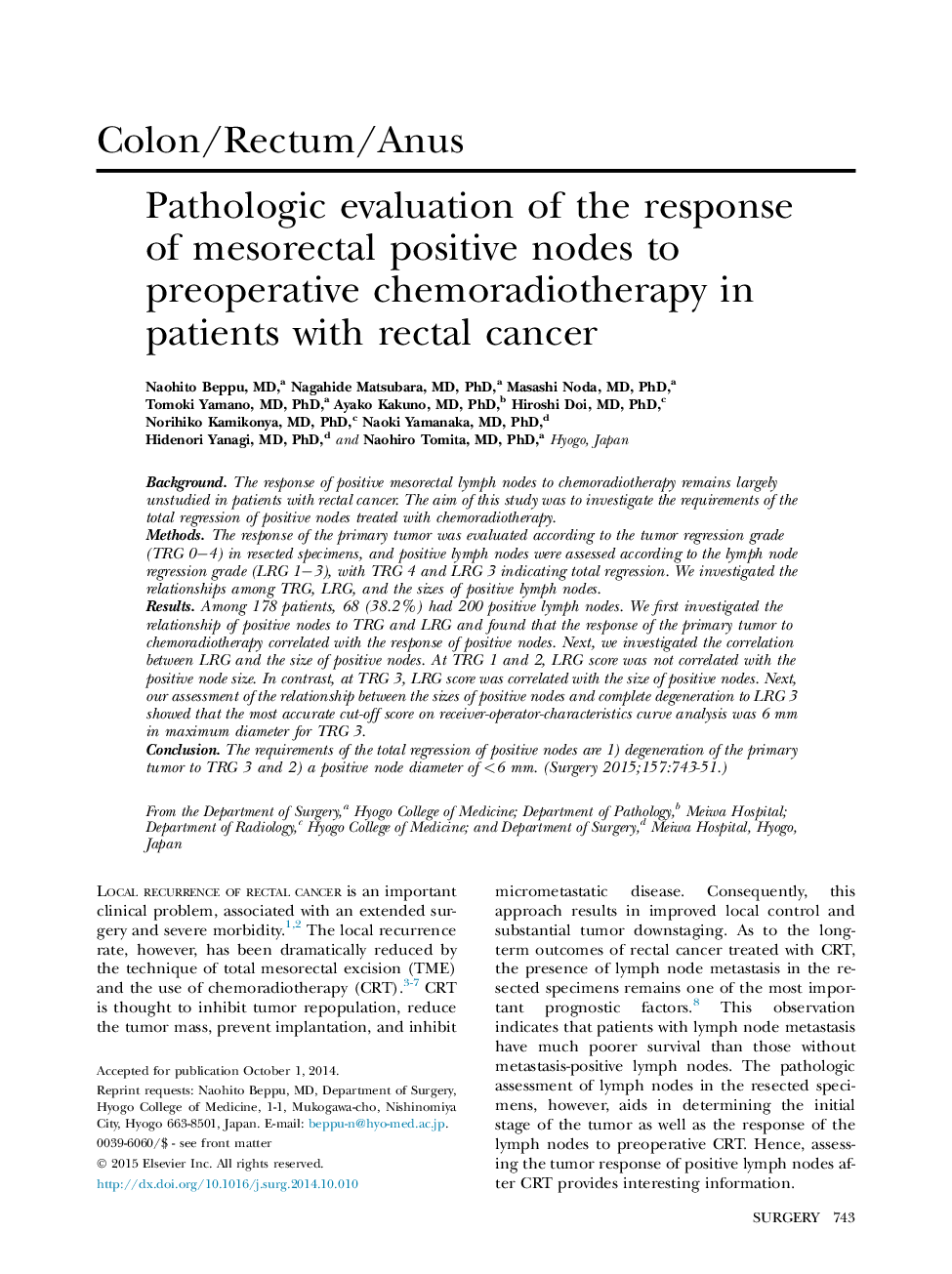| Article ID | Journal | Published Year | Pages | File Type |
|---|---|---|---|---|
| 4307182 | Surgery | 2015 | 9 Pages |
BackgroundThe response of positive mesorectal lymph nodes to chemoradiotherapy remains largely unstudied in patients with rectal cancer. The aim of this study was to investigate the requirements of the total regression of positive nodes treated with chemoradiotherapy.MethodsThe response of the primary tumor was evaluated according to the tumor regression grade (TRG 0−4) in resected specimens, and positive lymph nodes were assessed according to the lymph node regression grade (LRG 1−3), with TRG 4 and LRG 3 indicating total regression. We investigated the relationships among TRG, LRG, and the sizes of positive lymph nodes.ResultsAmong 178 patients, 68 (38.2%) had 200 positive lymph nodes. We first investigated the relationship of positive nodes to TRG and LRG and found that the response of the primary tumor to chemoradiotherapy correlated with the response of positive nodes. Next, we investigated the correlation between LRG and the size of positive nodes. At TRG 1 and 2, LRG score was not correlated with the positive node size. In contrast, at TRG 3, LRG score was correlated with the size of positive nodes. Next, our assessment of the relationship between the sizes of positive nodes and complete degeneration to LRG 3 showed that the most accurate cut-off score on receiver-operator-characteristics curve analysis was 6 mm in maximum diameter for TRG 3.ConclusionThe requirements of the total regression of positive nodes are 1) degeneration of the primary tumor to TRG 3 and 2) a positive node diameter of <6 mm.
